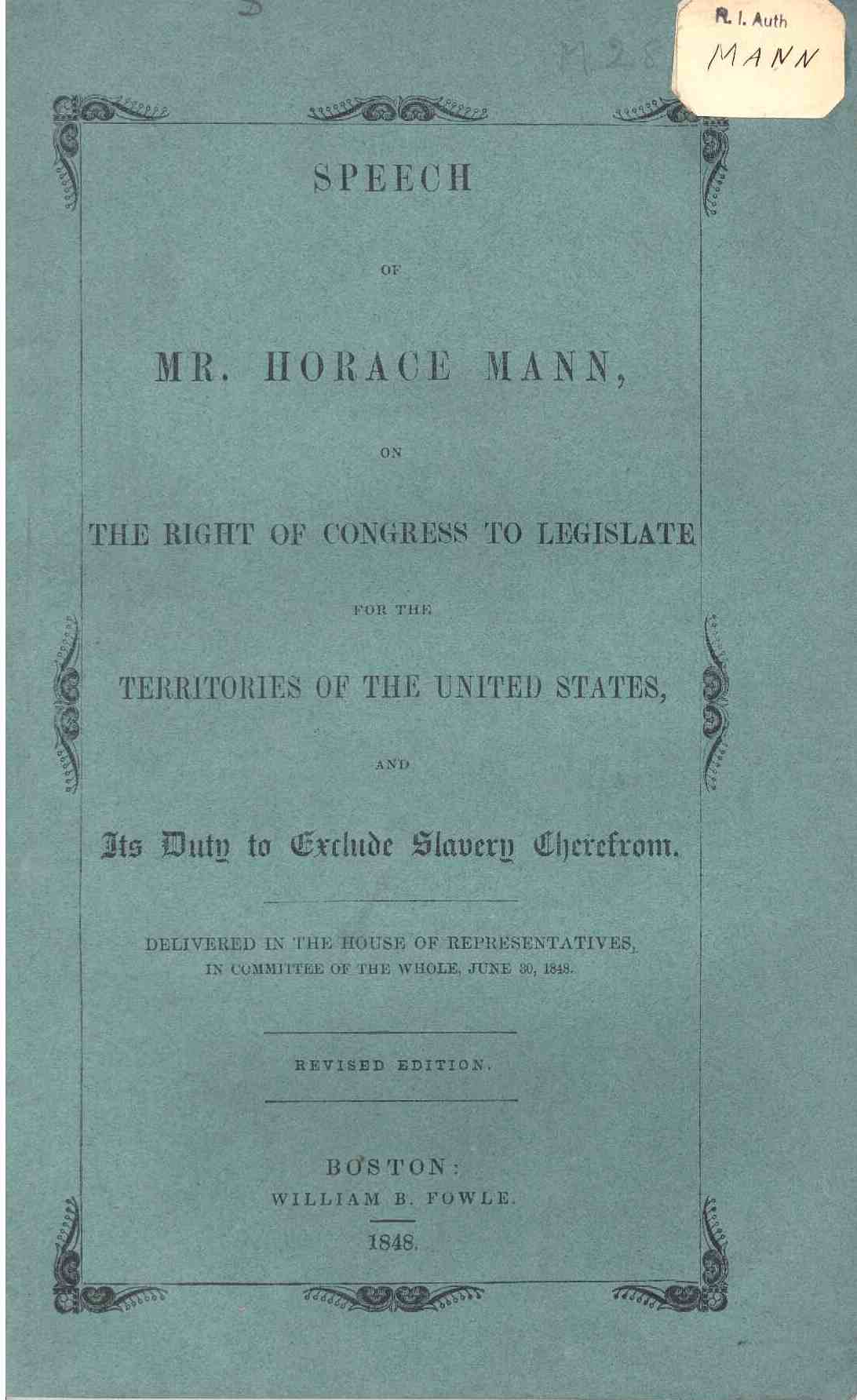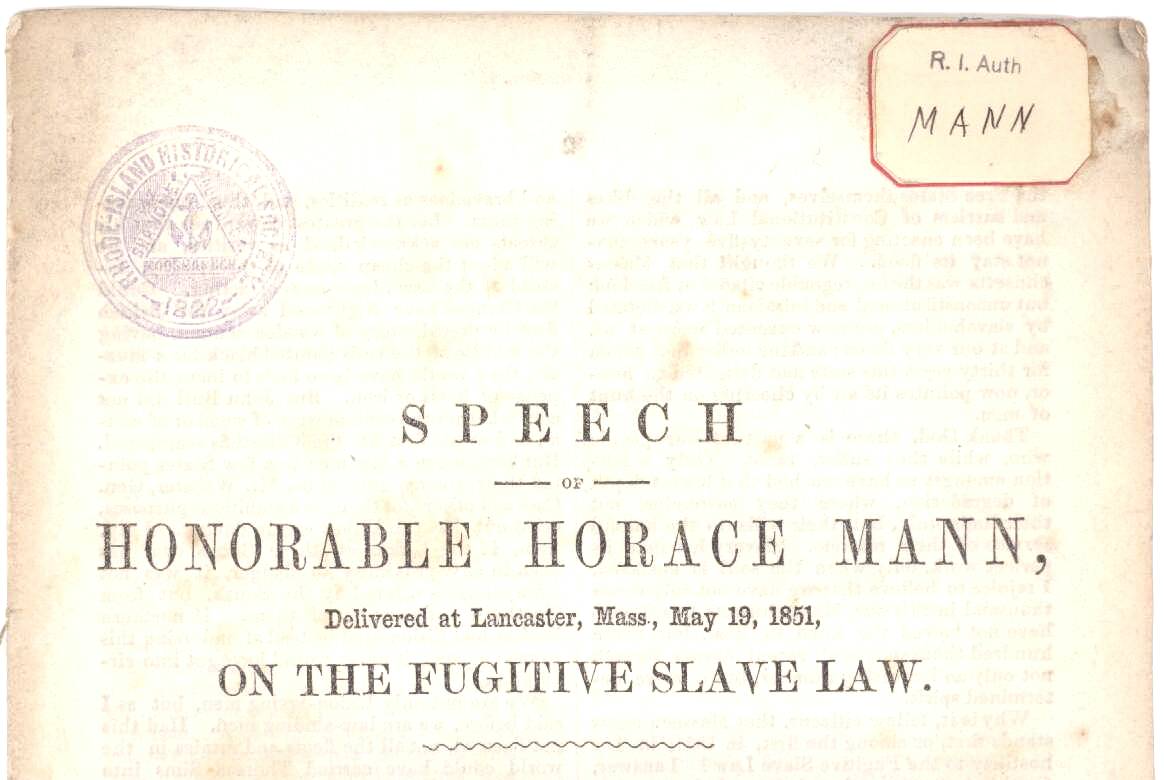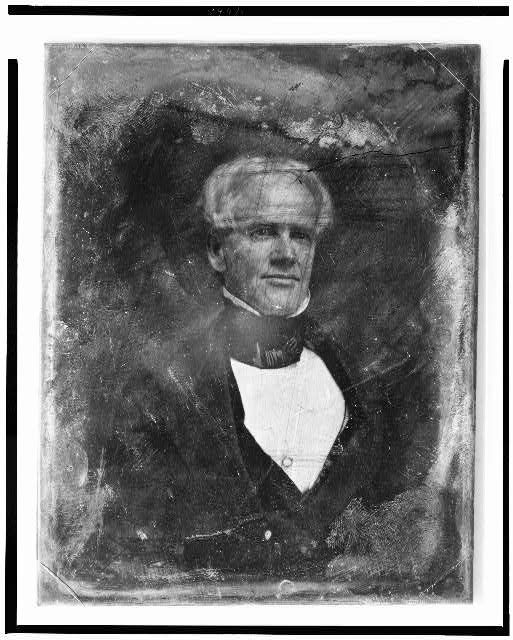People are most familiar with Horace Mann (1796-1859) for his dedicated work for public education. But he applied the same fire to his orations against the Fugitive Slave Law of 1850 and the debate on extending slavery into the newly acquired territories of what would become California and New Mexico.

Raised a strict Calvinist on a farm in Franklin, MA, he educated himself at his town library and with a tutor. “The Father of American Education” then attended Brown University in Providence and was valedictorian of the Class of 1819. Biographer George Allen Hubbell even credits Brown with helping to solidify his beliefs in universal rights: “Those who made the charter of Brown University had decided that it should be a liberal institution, in which no religious test were to be required; but for all members there was free, full, absolute and uninterrupted liberty of conscience.” He left Brown a committed Unitarian.
This Rhode Island connection can probably account for the trove of newly “re-discovered” Mann imprints at the RIHS Library. Most notably rare copy of the Speech of Honorable Horace Mann, delivered at Lancaster, Mass., May 19, 1851, on the Fugitive Slave Law. (Boston: Office of the Commonwealth [Charles List & Co.], 1851.)

“Be ashamed to die until you have won some victory for humanity.”

Further Reading
“Oratory and Learning: Horace Mann at Brown,” by Kathleen Edgerton Kendall. Rhode Island History, Vol. 30(Winter):(1971). The Rhode Island Historical Society.
“Horace Mann at Brown,” by Jonathan C. Messerli. Harvard Educational Review, 33(3):285–311 (1963)
Horace Mann. By Jonathan Messerli (New York: Knopf, 1972)
Horace Mann, educator, patriot and reformer: a study in leadership. By George Allen Hubbell. Philadelphia: 1910)
Horace Mann, 1796–1859: A Bibliography. By Clyde S. King. (Oceana Publications, 1966)
